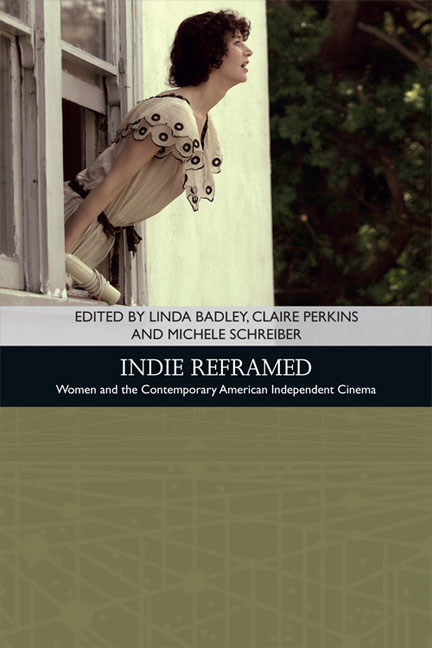1 - Women Make Movies: Chicken & Egg Pictures, Gamechanger Films and the Future of Female Independent Filmmaking
Published online by Cambridge University Press: 10 November 2020
Summary
As numerous critics and studies have noted, though women now represent 50% of film school graduates, there is still a limited number of films directed by women within the cultural marketplace. For instance, only 5% of the directors of the Top 100 grossing films of 1994–2013 and only 7% of directors of the 250 top grossing films of 2009–12 were women. In addition, women comprise only 13.5% of the Director's Guild of America. The independent film industry only marginally increases these numbers, with women comprising 18% of the directors of narrative features at film festivals between 2011 and 2012 and 10% of directors of indie features between 2009 and 2013 (Gamechanger Films 2015).
In 2001, the feminist group of artists and activists the Guerrilla Girls drew attention to this gender disparity within the industry by targeting the sexist hiring and promotional practices for film directors noting that no Best Director Oscar had ever been awarded to a woman. Although in 2010, Kathryn Bigelow became the first woman to win the Best Director Oscar for The Hurt Locker, only three other female filmmakers have ever been nominated for Best Director (Lina Wertmuller, Jane Campion, and Sofia Coppola). However, it is also important to note that when given the same budget, feature films by women do as well at the box office as those by men (Kelly and Robson 2014: 18). Citing a recent study by USC's Media, Diversity, and Social Change Initiative, Stacy L. Smith argues that ‘The No. 1 barrier is financial … The people who fund films and greenlight content are mostly male. Women are perceived to lack confidence and to be less trustworthy with resources’ (Keegan 2014). Thus, female film directors are not only less likely to get their projects funded, but they also lack the financial and industrial resources necessary to get their films produced, distributed and exhibited. This chapter examines three for-profit and not-for-profit organisations that are attempting to shift this gender disparity within the film industry: Women Make Movies, Chicken & Egg Pictures and Gamechanger Films.
- Type
- Chapter
- Information
- Indie ReframedWomen's Filmmaking and Contemporary American Independent Cinema, pp. 23 - 35Publisher: Edinburgh University PressPrint publication year: 2017



